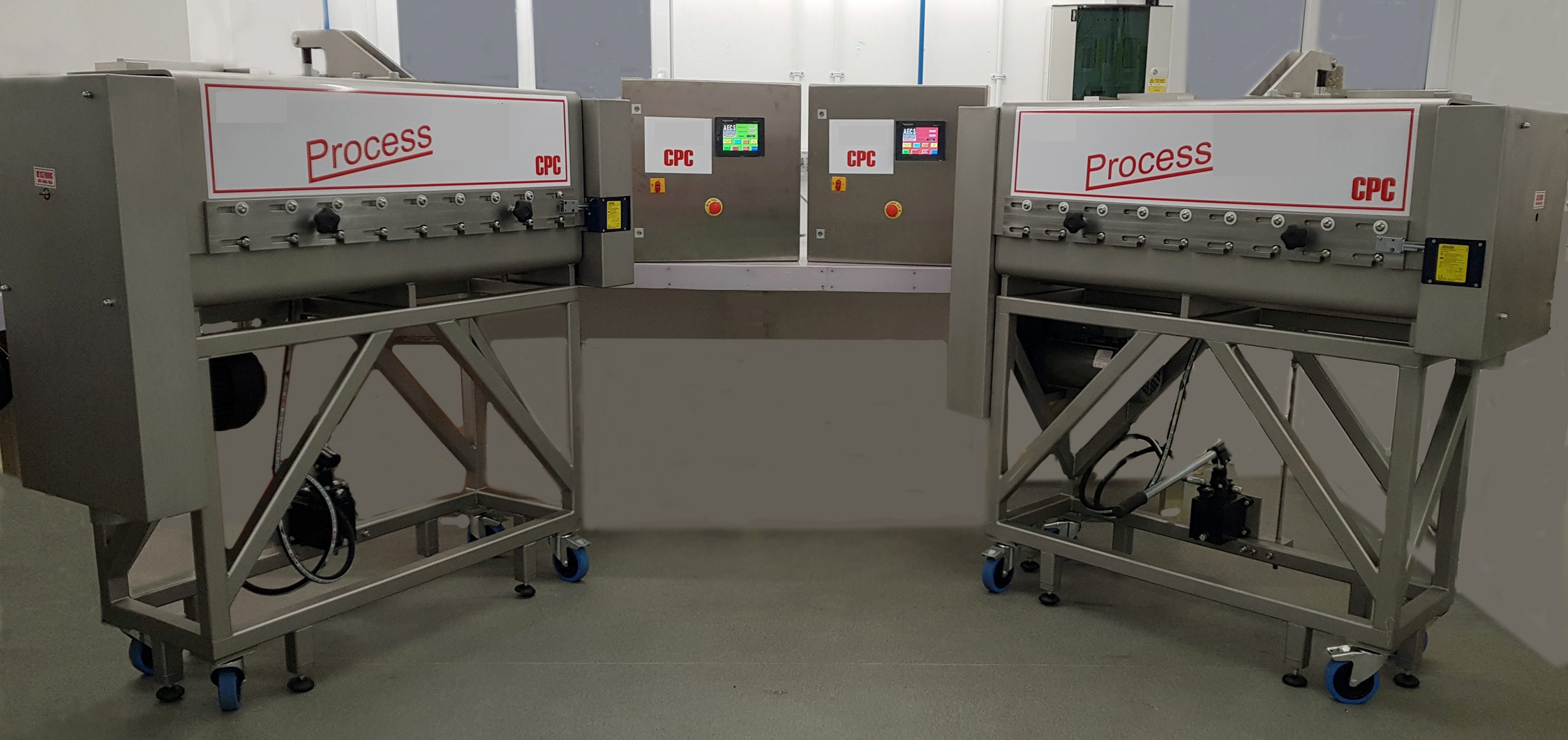- C101
- 12 liters standard
- Up to 100 liters custom
- Multiple 12 liter HPCPC’s (3-8 units) in SMB format for continuous operation
Centrifugal Partition Chromatography
Centrifugal Partition Chromatography is a better way to purify cannabinoids. CPC is a technique that is used to separate similar substances in the mixture based on their differing partition coefficients. Centrifugal partition chromatography (CPC) is a preparative liquid chromatography method. CPC can easily be scaled up to process and industrial levels. Centrifugal Partition Chromatography is a superior method for purifying CBD and other cannabis extracts.
CPC is different from traditional process HPLC and flash chromatography because it does not have a silica solid phase. Traditional high pressure liquid chromatography (HPLC) uses a solid stationary phase and a solvent as the mobile phase. In Counter Current Chromatography (CCC) both phases are liquid. CCC includes both types of liquid-liquid chromatography. CCC includes hydrodynamic CCC and hydrostatic CCC. Hydrostatic CCC is also referred to as Centrifugal Partition Chromatography and is based on the principle of liquid-liquid partitioning.
Centrifugal Partition Chromatography (CPC) is a unique chromatographic technique where both the stationary and the mobile phase use two solvents that are immiscible. It is called Centrifugal Partition Chromatography because the stationary phase is held in place by a strong centrifugal force of a spinning rotor, while the mobile phase is pumped through the column. Partition refers to the solutes being partitioned in both liquid phases according to their relative solubility in each phase. In Centrifugal Partition Chromatography, the Rotary movement of the column rotates around a single axis. The rotor design gives CPC enormous separation potential. Elution is determined by the affinity for the mobile phase. Molecules with greater affinity for the mobile phase elute first. Molecules with greater affinity for the stationary phase elute later. CPC systems can work in both ascending and descending modes. If the lighter phase is the mobile phase it is the ascending mode. If the heavier phase is the mobile phase it is the descending mode. This concept allows purification similar to normal and reverse phase modes in traditional chromatography, without replacing the column.
It is important to understand that the CPC rotor serves the same role as a traditional HPLC column would serve. Each system also requires preparative HPLC pumps, UV detectors, fraction collection capability, valves and preparative chromatography software.
There are many different chromatography based techniques available to the cannabis and hemp industry. While traditional preparative high pressure liquid chromatography (HPLC) and flash chromatography seems to be the obvious method for purification of cannabinoids, they may not be the most efficient choice. Centrifugal Partitioning Chromatography is used to separate, identify and quantify the chemical components of a mixture, such as cannabis or hemp. CCC and CPC offers the end user many advantages over traditional HPLC methods. Countercurrent Chromatography has been used to purify natural products for over 50 years. Below are the benefits of Counter Current Chromatography (CCC) and High Performance Centrifugal Partition Chromatography (HPCPC):
- Highest yields typically 90 to 95%
- No solid support to purchase or dispose of
- No irreversible binding as with prep HPLC or flash chromatography, because there is no solid phase to bind to
- Purity of almost 100%
- Lower operating cost compared to prep HPLC and flash chromatography because there is no solid phase to purchase or replenish.
- No degradation in efficiency from run to run
- Reduced run times
- Easier to scale than traditional liquid chromatography
- Significantly higher loading volumes compared to flash or prep HPLC
- Typical injection loading 10% of coil volume
- Pesticides are removed in the purification process
- No risk of a blocked or contaminated column
- Pure fractions of major and minor cannabinoids from a crude mixture as well as terpenes, alkaloids, flavonoids and other compounds
- CPC is capable of purifying cannabinoids in the purest form enabling THC free CBD
- High injection capacity
- CPC columns typically use about 20% of the solvent used for traditional columns
- Solvents can be recycled for additional savings
- CPC columns do not need to be replaced like preparative HPLC or flash columns
While HPLC is the industry standard for cannabinoid potency testing, CPC will likely become the gold standard for purification of cannabinoids. There are a couple of drawbacks to CPC purifications. The first is that most purification specialists are unfamiliar with the technology. The second limitation is that most chromatographers are unfamiliar with how to optimize CPC for cannabinoid purifications. Partnering with Icon Scientific you will overcome both of these obstacles. Our Technical Support group has extensive expertise and will guarantee your purification success.
